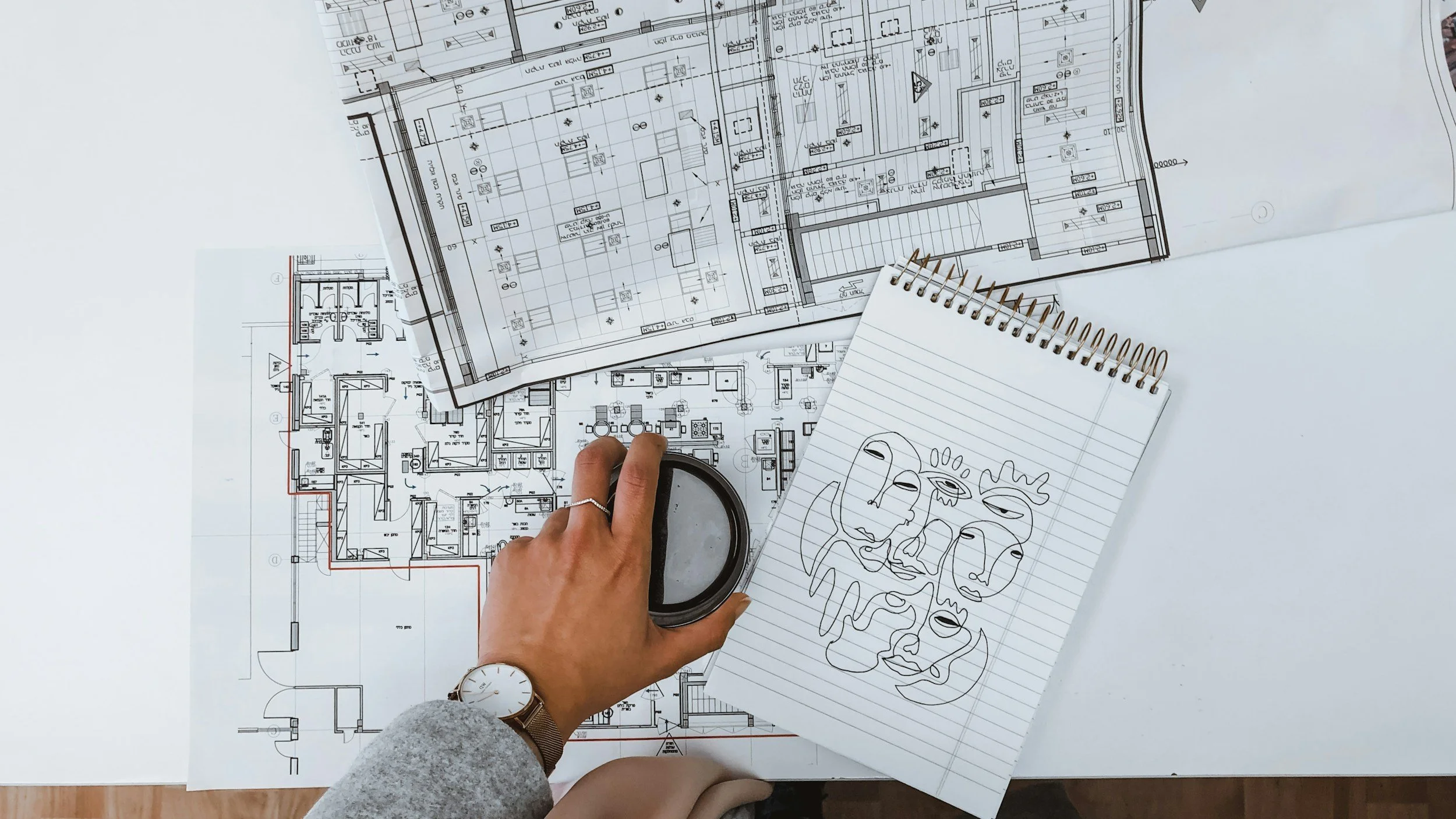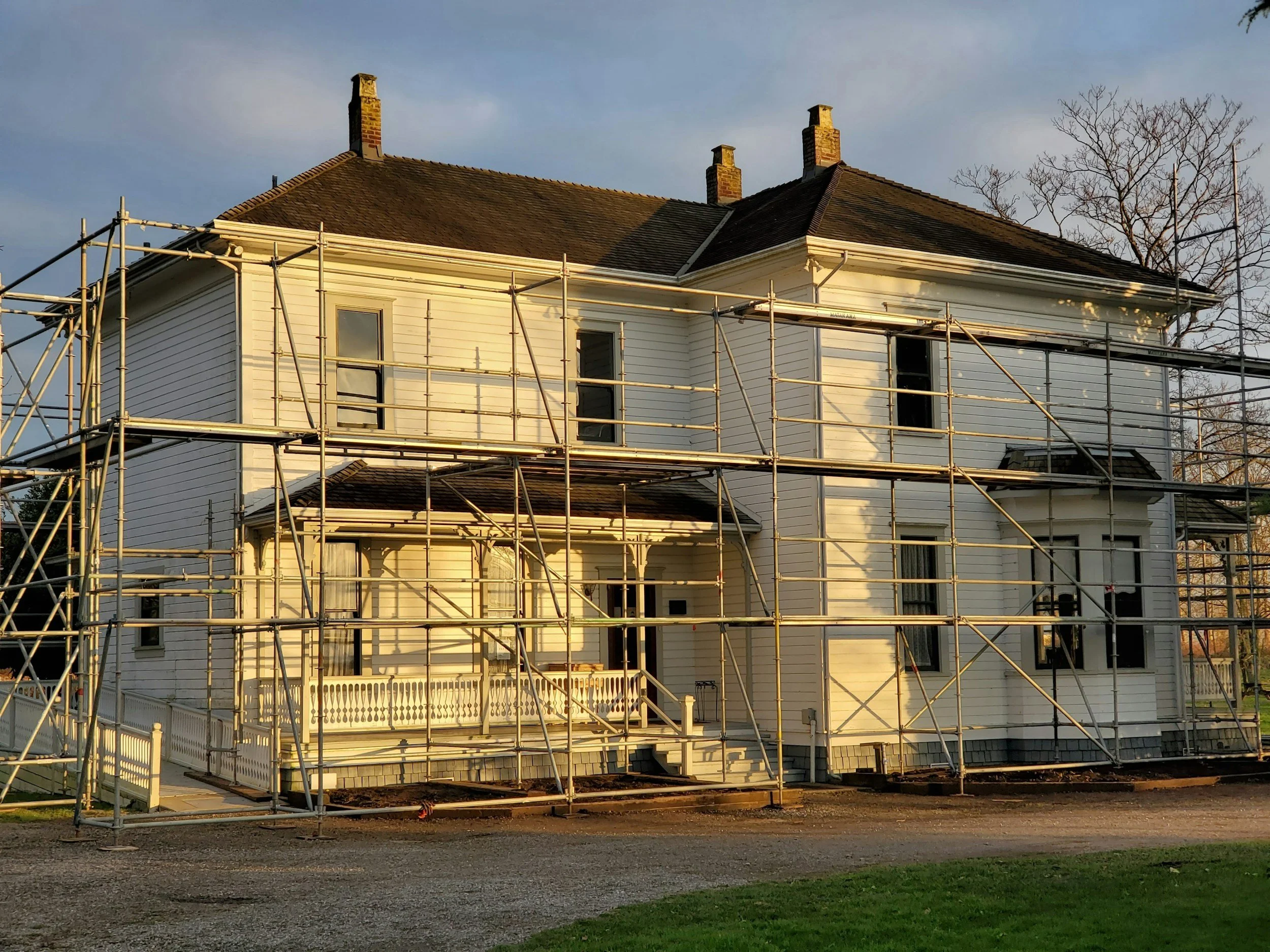Houston Custom Builders: Understanding Permits & Zoning Laws
Houston's custom builders face a complex landscape of zoning laws, building codes, and permit requirements. Navigating these regulations involves understanding plot restrictions, engineering specifications, and accessibility standards. Skilled builders must coordinate inspections and ensure compliance with local codes throughout the construction process. In this article, we'll explore how experienced Houston custom builders navigate the intricate world of permits and zoning laws, ensuring smooth project execution from start to finish.
Key Takeaways
Houston's zoning laws significantly impact custom home construction and project planning
Custom builders must navigate a complex permit application process to ensure compliance with local regulations
Building codes in Houston cover various aspects, including structural integrity, electrical systems, and energy efficiency
Engaging with local communities can help builders address zoning challenges and gain support for projects
Post-permit phases involve ongoing inspections and obtaining certificates of occupancy to finalize construction projects
Understanding the Basics of Houston's Zoning Laws

Houston's zoning laws shape the city's development landscape, influencing how custom builders create content for their projects. These regulations dictate land use, building height, and setbacks, impacting everything from structural design to plumbing installations. Custom builders must navigate these rules, which can affect project fees and timelines. Understanding zoning laws is essential for builders to efficiently plan and execute construction, often utilizing specialized tools to ensure compliance. While Houston is known for its relatively flexible zoning approach, builders still need to adhere to specific guidelines, which may include flat rate fees for certain permits.
Zoning Laws Overview
Houston's unique approach to zoning laws sets it apart from many other major cities. Unlike traditional zoning systems, Houston employs a combination of deed restrictions, development ordinances, and land use regulations to guide construction and ensure public health and safety. These regulations cover various aspects, including employment centers, construction standards, and site plan requirements. Builders must navigate this system carefully, often consulting the city's website for sign permits and other necessary approvals before breaking ground on custom home projects.
How Zoning Influences Construction
Houston's zoning laws significantly impact custom home construction by dictating property use, building height limits, and setback requirements. These regulations influence infrastructure planning, affecting everything from utility connections to road access. Builders must factor in zoning-related costs, including potential tax implications and permit fees, when budgeting for projects. Understanding and adhering to these zoning rules is crucial for custom builders to ensure smooth project execution and avoid costly delays or penalties.
Step-by-Step Guide to Obtaining Construction Permits

Obtaining construction permits in Houston requires custom builders to navigate a complex system of regulations and processes. This step-by-step guide outlines the journey from identifying necessary permits to receiving final approval, ensuring compliance with local jurisdiction requirements. Builders must consider various factors, including flood zones, emergency preparedness, and building codes. In some cases, a variance may be required to address unique project needs. Understanding this process is crucial for custom builders to manage their projects and avoid potential setbacks efficiently.
Identifying the Necessary Permits
Custom builders in Houston must identify and obtain various permits before starting construction. These typically include building, electrical, plumbing, and mechanical permits. Depending on the project scope, additional permits may be required for signs, fences, or specific business operations. Builders also need to secure a certificate of occupancy upon project completion, which verifies compliance with all necessary inspections and regulations.
Research local zoning laws and building codes
Determine required permits based on project scope
Submit permit applications to relevant city departments
Schedule and pass necessary inspections
Obtain final certificate of occupancy
Submitting Permit Applications
Houston custom builders must submit detailed permit applications to the city government, addressing key considerations like floodplain management and easement restrictions. These applications typically require site plans, construction drawings, and energy compliance documentation. Builders must ensure all submissions meet local building codes and regulations before obtaining the necessary permits and certificates of occupancy.
Navigating the Review Process
Custom builders in Houston navigate the permit review process by submitting detailed applications and supporting documents to the city's planning department. They reference the official website for up-to-date information on submission requirements and download necessary PDF forms. Builders often secure construction loans to cover project costs while awaiting permit approval, which can take several weeks, depending on the project's complexity.
Receiving Approval
After meticulously presenting their construction plans to the planning commission, custom builders in Houston successfully navigate through a rigorous review process, which involves demonstrating compliance with zoning regulations, building codes, and other pertinent requirements. Upon meeting these stringent criteria, the builders receive the essential approval for their construction permits, allowing them to proceed with their intended projects.
Dealing With Houston's Building Codes

Houston's custom builders navigate a complex web of building codes and regulations. These standards ensure safety, quality, and consistency in construction across the city and its extraterritorial jurisdiction. Builders must stay updated on the latest codes, which cover everything from structural integrity to energy efficiency. Understanding these regulations is crucial for obtaining necessary permits and avoiding costly delays. Houston's building department offers a comprehensive FAQ section on their service website, helping builders address common questions about code compliance and enforcement.
Key Building Codes for Custom Homes
Houston custom builders must navigate key building codes for custom homes, including those related to structural integrity, electrical systems, plumbing, and energy efficiency. These codes often address specific concerns such as flood prevention, wind resistance, and fire safety. Builders must obtain proper licenses and permits for various aspects of construction, including demolition and work in subdivisions. They may need to consult with city officials or use online servers to access the most up-to-date code information and requirements:
Structural codes for earthquake and hurricane resistance
Electrical codes for safe wiring and power distribution
Plumbing codes for proper water and waste management
Energy efficiency codes for insulation and HVAC systems
Fire safety codes for materials and emergency exits
Compliance With Houston Building Standards
Houston custom builders must comply with rigorous building standards to ensure safety and quality in construction projects. These standards cover various aspects, including structural integrity, electrical systems, plumbing, and energy efficiency. Builders work closely with city inspectors to verify compliance throughout the construction process, often using specialized software to track and document adherence to local codes:
| Building Standard | Key Requirements | Inspection Frequency |
|---|---|---|
| Structural Integrity | Wind resistance, foundation stability | Multiple stages |
| Electrical Systems | Proper wiring, circuit protection | Rough-in and final |
| Plumbing | Leak-free installations, proper venting | Rough-in and final |
| Energy Efficiency | Insulation, HVAC performance | Pre-drywall and final |
How to Handle Zoning Challenges for Custom Builds
Custom builders in Houston face unique zoning challenges when developing properties. These challenges can range from building height restrictions and setbacks to property use limitations. Experienced builders employ various strategies to navigate these obstacles, including identifying potential issues early in the planning process, seeking variances when necessary, and engaging with local communities to gain support for their projects. By addressing zoning challenges proactively, builders can minimize delays and ensure their custom builds comply with local regulations while meeting their clients' needs.
Identifying Potential Zoning Issues
Houston custom builders identify potential zoning issues by thoroughly researching local regulations and conducting site assessments. They review zoning maps, land use restrictions, and historical records to understand how these factors might impact their proposed projects. Builders often consult with city planners and zoning officials to clarify any ambiguities and anticipate challenges before submitting permit applications.
Strategies for Zoning Variance Requests
Houston custom builders employ strategic approaches when seeking zoning variances for their projects. They prepare detailed applications, highlighting how their proposed deviations align with the neighborhood's character and contribute to community development. Builders often engage local stakeholders, including neighbors and community groups, to gain support for their variance requests before presenting them to the zoning board.
Engaging With the Community
Custom builders in Houston actively engage with local communities to address zoning challenges. They attend neighborhood meetings, host open houses, and participate in community events to explain their projects and gather feedback. This proactive approach helps builders build trust, address concerns, and gain support for their custom builds, often smoothing the path for zoning approvals and variances.
The Role of Site Plans in Houston Permit Applications
Site plans are crucial in Houston's permit application process for custom builders. These detailed drawings provide a comprehensive overview of the proposed construction project, including property boundaries, building locations, and utility connections. Custom builders must create accurate site plans that meet Houston's specific requirements to ensure smooth permit approval. The city's planning department carefully reviews these plans to assess compliance with zoning laws, building codes, and other regulations. A well-prepared site plan can significantly expedite the permit process, allowing builders to commence construction more quickly and efficiently.
Creating a Site Plan
Custom builders in Houston create site plans by carefully mapping out property boundaries, proposed structures, and essential features like driveways and utilities. They use specialized software or work with professional surveyors to ensure accuracy and compliance with local regulations. These detailed plans typically include setback measurements, topographical information, and any existing structures or natural features that may impact the project.
Site Plan Requirements for Houston
Houston's site plan requirements for custom builders include specific elements crucial for permit approval. The city mandates detailed drawings showing property lines, building footprints, setbacks, parking areas, and utility connections. Custom builders must also indicate flood zones, easements, and any proposed changes to existing topography on their site plans.
Importance in the Permit Process
Site plans hold significant importance in Houston's permit process for custom builders. These detailed documents serve as a blueprint for proposed construction projects, allowing city officials to assess compliance with local regulations. Accurate and comprehensive site plans can expedite the permit approval process, enabling builders to start their projects sooner:
Demonstrates compliance with zoning laws and building codes
Provides clear visualization of the project for city planners
Helps identify potential issues before construction begins
Facilitates faster review and approval by city officials
Serves as a reference document throughout the construction process
Navigating Post-Permit Phases for Houston Developments
Custom builders in Houston face critical post-permit phases that require careful navigation. After securing necessary permits, builders must manage ongoing inspections throughout the construction process to ensure compliance with local regulations. These inspections verify that the project adheres to approved plans and meets safety standards. Upon completion, builders must obtain certificates of occupancy, which serve as final approval for the structure's use. This process involves demonstrating that all building codes have been met and the property is ready for occupancy. Understanding these post-permit requirements helps custom builders in Houston maintain smooth project progression and achieve timely completion.
Inspections During Construction
Custom builders in Houston undergo regular inspections during construction to ensure compliance with local codes and approved plans. City inspectors visit the site at key stages, such as foundation pouring, framing, electrical and plumbing installations, and final completion. Builders must schedule these inspections in advance and address any issues promptly to avoid delays in the construction timeline:
| Inspection Stage | Focus Areas | Typical Timing |
|---|---|---|
| Foundation | Soil preparation, reinforcement | Before concrete pour |
| Framing | Structural integrity, load-bearing walls | After frame completion |
| Electrical | Wiring, panel installation | Before drywall installation |
| Plumbing | Pipe layout, leak testing | Before covering walls |
| Finalize | Overall compliance, safety features | Before occupancy |
Finalizing Projects With Certificates of Occupancy
Custom builders in Houston finalize their projects by obtaining certificates of occupancy from the city council. This crucial document verifies that the construction meets all building codes and zoning requirements. Builders must pass a final inspection and submit the necessary documentation to receive this certificate, which allows occupants to legally move into the completed structure:
| Step | Action | Responsible Party |
|---|---|---|
| 1 | Schedule final inspection | Builder |
| 2 | Conduct final inspection | City Inspector |
| 3 | Address any issues | Builder |
| 4 | Submit required documents | Builder |
| 5 | Issue certificate of occupancy | City Official |
Conclusion
Houston custom builders must navigate complex local permits and zoning laws to ensure successful project completion. Understanding Houston's unique zoning approach, obtaining necessary permits, and adhering to building codes form the foundation of compliant construction. Experienced builders create detailed site plans, address potential zoning challenges proactively, and manage post-permit phases effectively. By mastering these aspects, custom builders can streamline their projects, avoid costly delays, and deliver high-quality homes that meet both client expectations and local regulations.



